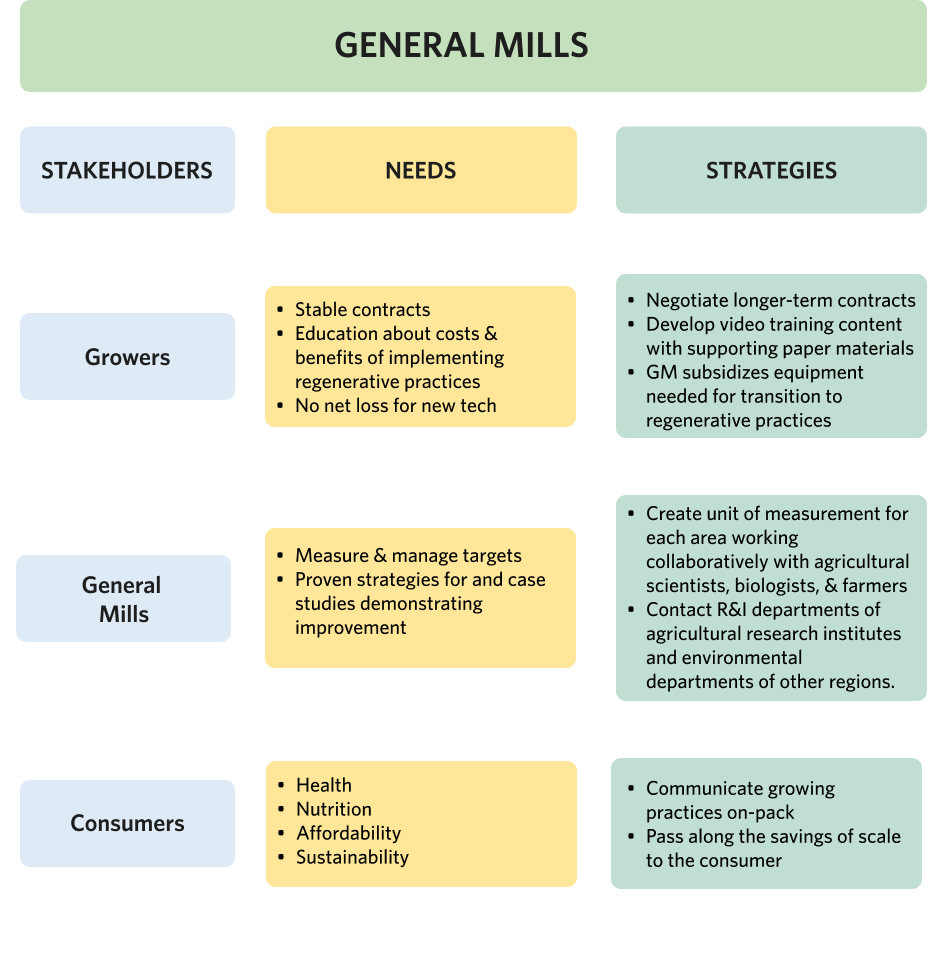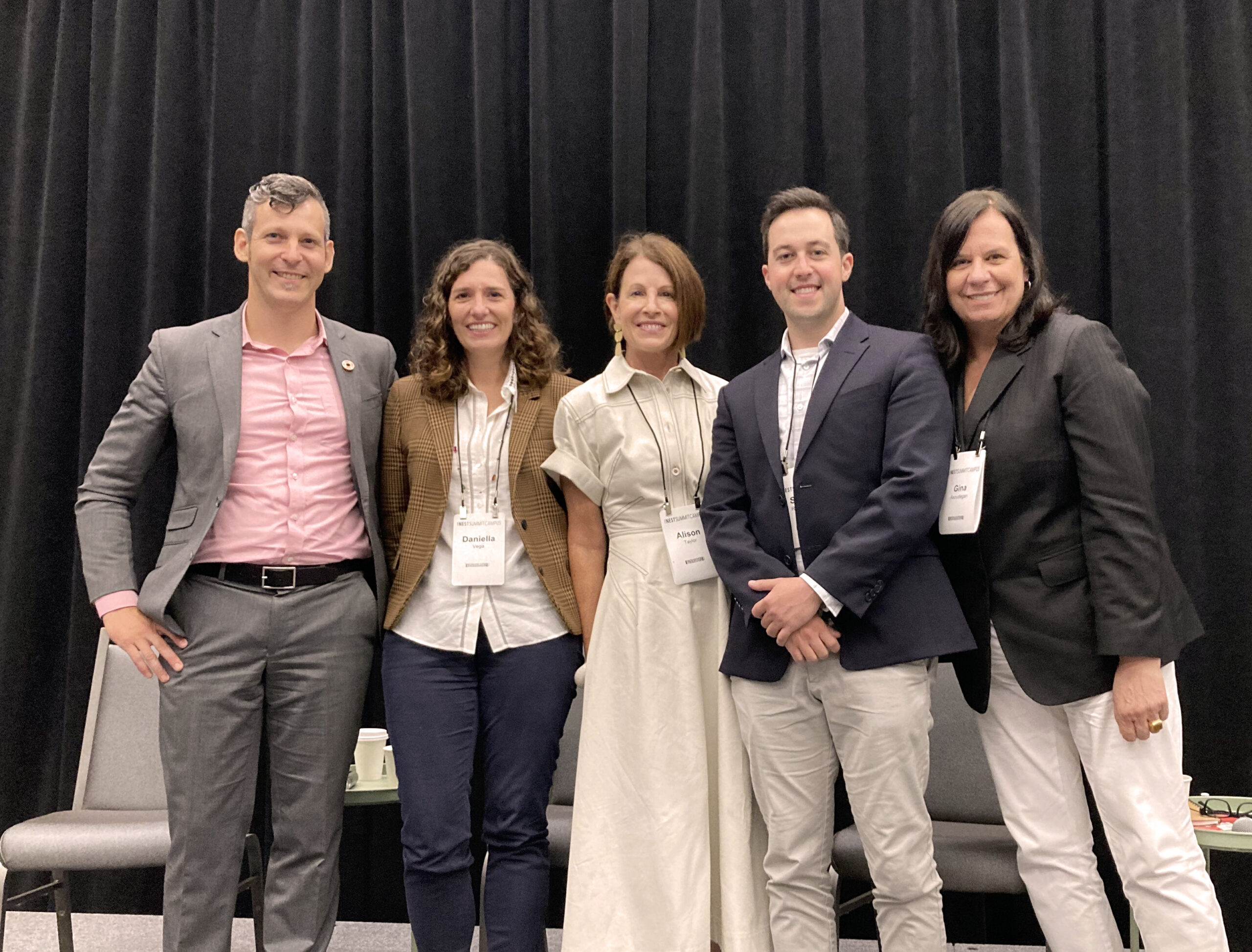What are the social and environmental impacts that matter to consumers in addition to greenhouse gas emissions, such as biodiversity, labor risk, animal welfare, soil health?
We’re sharing discussion and ideation from HowGood’s most recent panel at Climate Week NYC 2022 in which major players in the food system and audience members alike strategize around next-gen sustainability.
Scope 3 Emission Reductions at ADM
“As a corporation which is very used to measuring everything on a quarterly basis, how can we measure carbon and measure reductions in carbon that are not in our control?”
— Alison Taylor, Chief Sustainability Officer, ADM
Challenge statement:
-
Set Scope 3 emissions reduction goal
Goal:
-
Credible absolute scope 3 emissions reductions over a 15-year trajectory with an established pathway for achievement
Key considerations:
-
Availability of baseline data in Scope 3 categories
-
Motivating growers to reduce emissions and provide data
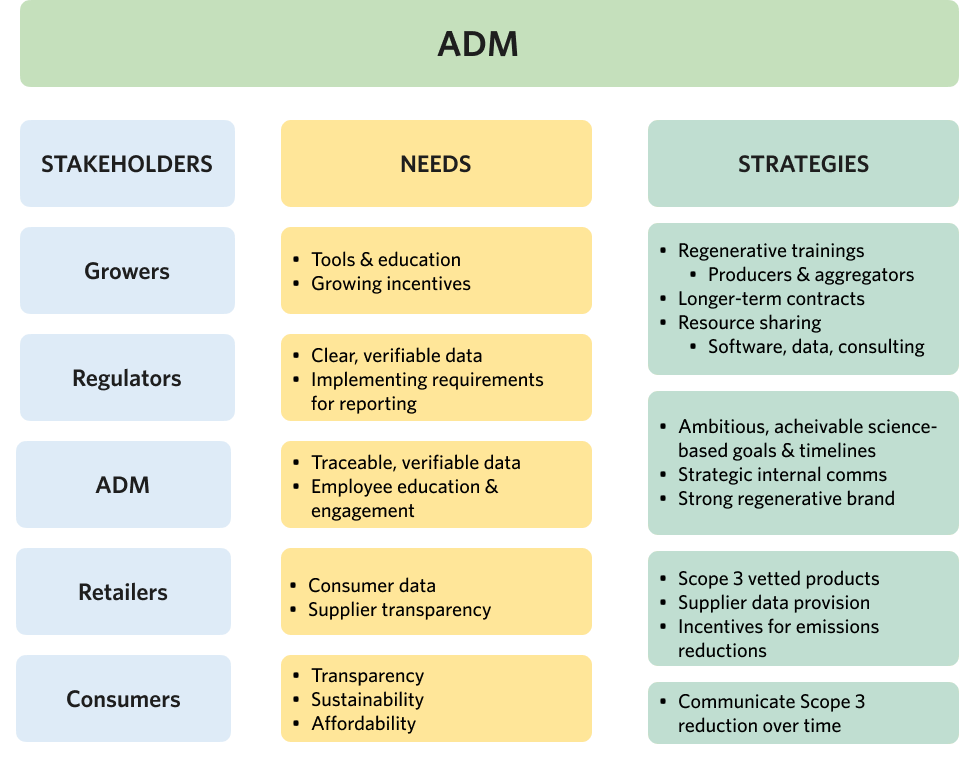
Health & Sustainability at Ahold Delhaize
“From our perspective as a food retailer, I like to think of us as the middle of an hourglass looking upstream and down. We see the pull directly from our customers for sustainability and we also see the confusion for the lack of transparency and coherence in the systems.”
— Daniella Vega, Global Senior Vice President, Health & Sustainability, Ahold Delhaize
Challenge statement:
-
Support its customers to make more healthy and sustainable choices
Goal:
-
Shift the consumer shopping basket toward healthy and sustainable products
Key considerations:
-
Increased awareness of health & sustainability but “say-do” gap remains an obstacle
-
Value perception – price is the most important component, followed by taste and convenience
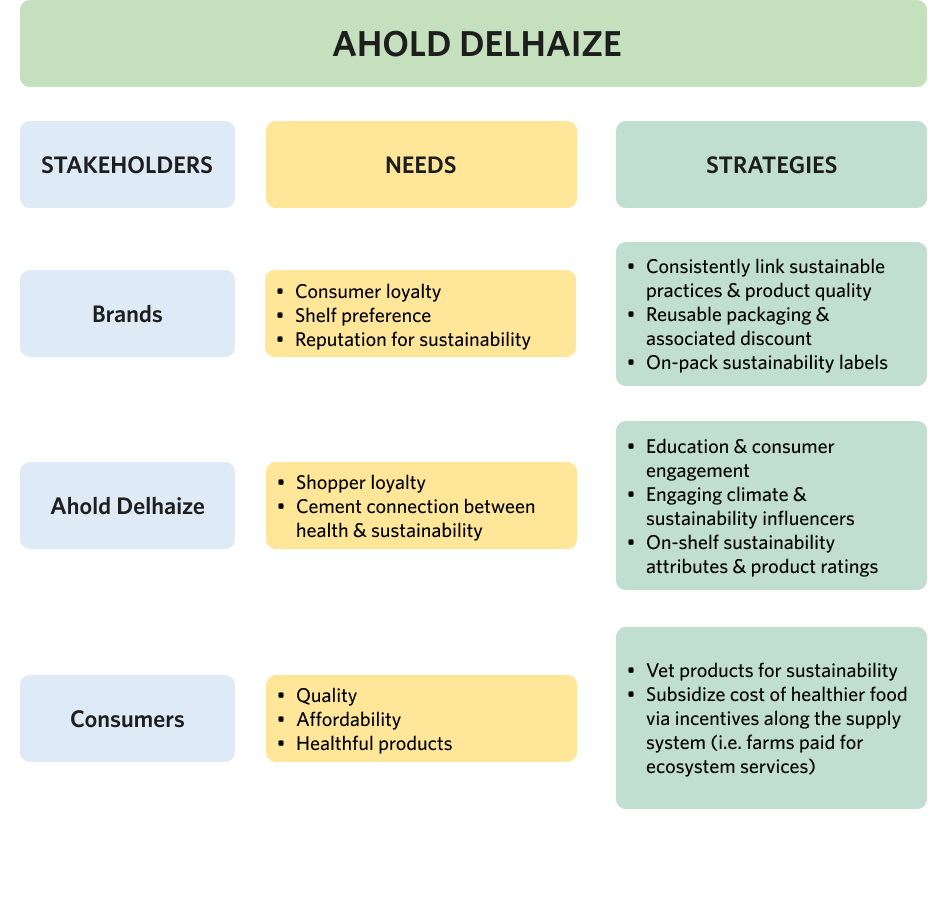
Quantitative Regeneration & Nutrient Density at Applegate
“How do we get consumers to understand the connection between regenerative agriculture, superior flavor, and nutrition in a sea of products covered in all sorts of labels?”
— Gina Asoudegan, VP of Mission and Regenerative Agriculture, Applegate
Challenge statement:
-
Availability of data that proves the connection between regenerative farming practices and nutrient density of food
Goal:
-
Communicate the connection between regenerative farming practices, nutrition, and superior flavor to consumers
Key considerations:
-
Differentiation of product on-shelf
-
Limited space on-pack
-
Competing and confusing claims
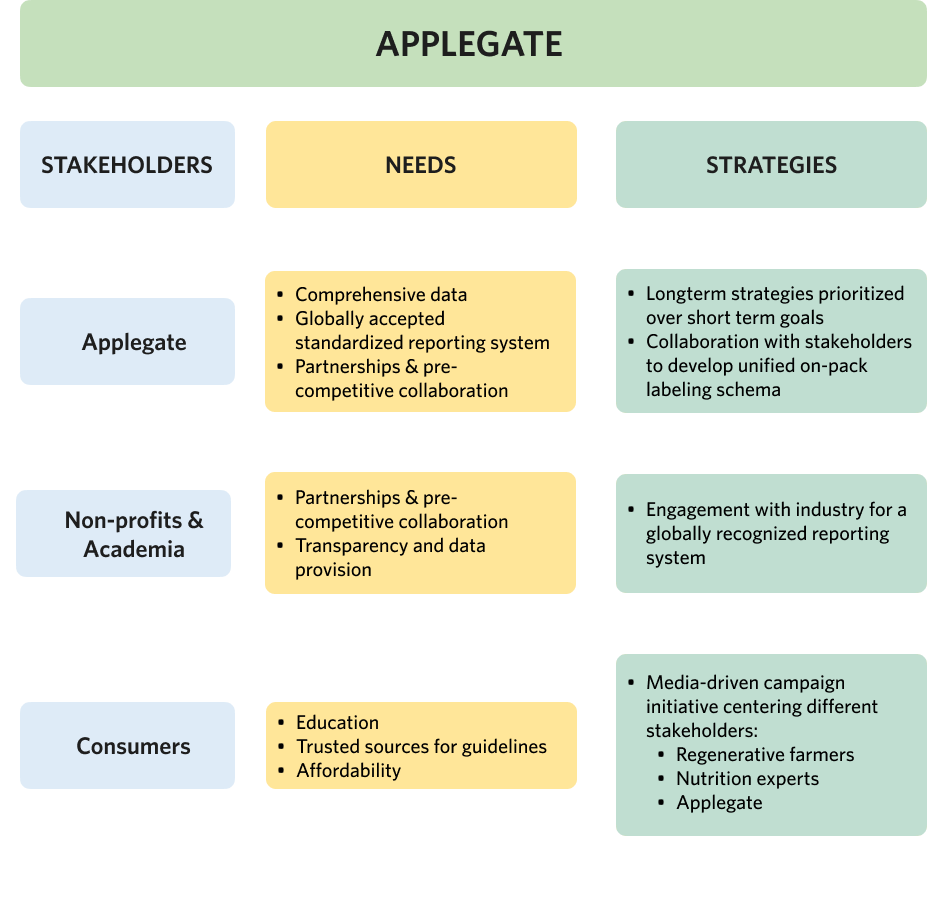
Regenerating Ecosystems at General Mills
“General Mills has a goal to reduce our scope three greenhouse gas footprint and agriculture represents 60% of the total emissions in our value chain. We have to be able to shift agricultural practices at scale to achieve that greenhouse gas reduction. We also have a regenerative agriculture commitment so we want to be able to see these impacts across soil health, biodiversity, water, and farmer economic resilience.“
— Steven Rosenzweig, Senior Agricultural Scientist, General Mills
Challenge statement:
-
Structure a strategy through 2030 to shift agricultural practices in the wheat sourcing region (US great plains) to achieve beneficial impacts on soil health, biodiversity, water quality, farmer economic resilience & reduced GHGe.
Goals:
-
Demonstrate a 30% reduction in the greenhouse gas footprint of wheat sourced from the region by 2030
-
Improve soil health, biodiversity, water quality, and farmer economic resilience on at least 1 million acres
Key considerations:
-
Highly dynamic supply chain
-
Demonstrated improvement on a broad set of complex metrics at the scale of millions of acres
-
Farmer challenges in changing practices
-
Finite financial and human resources
